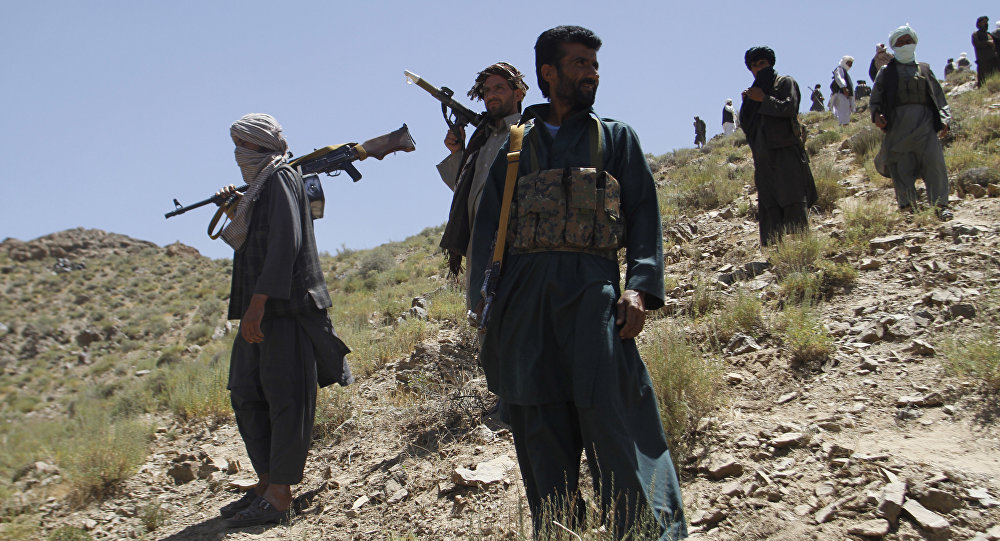Pakistan not doing enough to curb terror: US report
The US report on Pakistan red flags worries on the resurgence of Al Qaeda that was believed to have been decimated with the killing of its founder Osama bin Laden by US troops in Pakistan May 2011.

By Aasha Khosa
Pakistan is not doing enough to rein in terrorist organisations operating out of its soil in spite of its promise to do so. According to a latest US report – Country Reports on terrorism 2018 – the government has “failed to significantly limit Lashkar-e-Tayyiba (LeT) and Jaish-e-Mohammad (JeM) from raising money, recruiting, and training in Pakistan.”
The part of the report that directly concerns India, lists the twin Pakistan-based organizations as “regionally focused terrorist groups” that remain a threat. “Lashkar-e-Tayyiba and Jaish-e-Mohammad (JeM) maintained the capability and intent to attack Indian and Afghan targets,” it says.
These organizations led by UN designate terrorists Hafiz Saeed and Moulana Masood Azhar respectively have been operating in India and specifically Kashmir for Pakistan and in the name of Islam since the early nineties. Azhar Masood, leader of the Jaish was arrested in Srinagar by Indian Army in February 1994 as he travelled on a Portuguese passport. Nearly six years later, he was swapped along with three other terrorists for passengers of an Indian plane hijacked to Kandahar by the Taliban.
His group was involved in many attacks in Kashmir including on an Army camp at Sunjawan in Jammu in 2018, in which seven were killed.
Hafiz Saeed is sought by India for standing trial as the mastermind of the Mumbai terror strike of 2008 in which 166 people including Americans were killed by a group of Lashkar terrorists of Pakistani origins.
In a reference to Saeed’s attempt of entering the political arena by fielding proxy candidates of his political outfit in the July general elections, the report blames Pakistan for allowing candidates overtly affiliated to Lashkar’s front organizations to contest the general elections.
The report also points out Pakistan’s failure in implementing laws against terror financing. Though the anti-terror law makes terror financing a criminal offence its implementation remains uneven.
The report quotes Financial Action Task Force that has placed Pakistan on ‘grey list’ for deficiencies in its system to check the funding of terrorism in view of its obligations to implement the UN Security Council ISIL (Da’esh) and al-Qa’ida sanctions regime. “FATF noted that UN-listed entities, including LeT and its affiliates, were not effectively prohibited from raising funds in Pakistan, or being denied financial services. Although Pakistan’s laws technically comply with international AML/CFT standards, authorities failed to uniformly implement UN sanctions related to designated entities and individuals such as LeT and its affiliates, which continued to make use of economic resources and raise funds.”
The US report on Pakistan red flags worries on the resurgence of Al Qaeda that was believed to have been decimated with the killing of its founder Osama bin Laden by US troops in Pakistan May 2011. After the setbacks to ISIS in Syria, the “Al Qaeda aims to emerge as the vanguard of global jihadi terrorism.” Again, Pakistan along with Afghanistan is a country where Al Qaeda leadership’s remnants are present.
The report says “Despite our sustained efforts since September 11, 2001, and the group’s leadership losses, AQ’s regional affiliates continue to expand their ranks, plot, and carry out attacks, as well as raise funds and inspire new recruits through social media and virtual technologies.
As per the report, Al Qaeda’s affiliates continue to operate in Syria, the Arabian peninsula and in thr Indian sub continent under different names.
“The Taliban and the Haqqani network (HQN) continued to launch lethal attacks throughout Afghanistan, including against U.S. military personnel. Both these groups have an inalienable link to Pakistan, the former was raised there with the help of USA to take on Russians in Afghanistan while the latter is working as a proxy for Pakistan’s deep State in Afghanistan. The HQN killed more than 100 people after detonating an explosives-laden ambulance in Kabul in January last year. This happened a week after the Taliban conducted an attack on a Kabul hotel and killed 22.”
Pakistan claims to be a peacemaker in Afghanistan and supporter for the reconciliation between the Afghan government and the Afghan Taliban. However, the US says, it did not restrict the Afghan Taliban and the Haqqani Network (HQN) from operating in Pakistan-based safe havens and threatening U.S. and Afghan forces in Afghanistan.
The US report admits Pakistan too has been at the receiving end of terrorism and extremist violence. Tehrik-e Taliban Pakistan continued to target police and civilians inside the country while separatist outfits in Balochistan and Sind also launched major attacks on the government facilities and security forces alike. .
‘Pakistan experienced numerous terrorist attacks in 2018. Militant and terrorist groups targeted civilians, journalists, community leaders, security forces, law enforcement agents, and schools killing and injuring hundreds. Religious enforcement, and Border Security.”